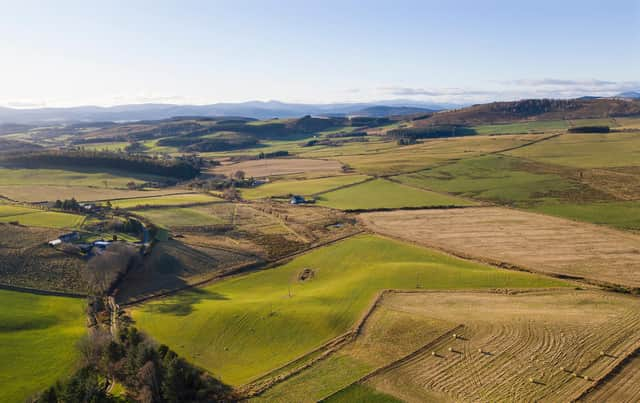Our fragile rural communities must count in this rush for our countryside - Scotsman leader comment


Even previously undesirable land of limited use, such as poor hill land, are in demand with such plots now being snapped up for sums never seen before.
Driving this new wave of purchases is “natural capital” – assets where vast numbers of trees can be planted or peatlands restored to sequestrate carbon, for example.
Advertisement
Hide AdAdvertisement
Hide AdEstate agents have spoken of a recent “stand-out” example, a 72-hectares of permanent pasture and rough grazing in Aberdeenshire, which was advertised for sale at offers over £875,000. It sold quickly for £1.2 million.
Bidwells has been involved with £55m worth of natural capital asset sales this year. It said investors were looking for more than just financial returns from land and seeking “responsible projects” that will help tackle the twin crises of climate change and loss of wildlife species.
We all recognise these as laudable aims.
Meanwhile, the land can also offer further returns for their owners. Businesses seeking to off-set their carbon emissions can secure government grants by buying land for tree planting. Carbon credits which promote removal of greenhouse gases from the atmosphere can be traded.
Several high profile companies have bought into natural capital sites in Scotland, and the government recognises private investors are important in helping it meet its climate ambitions.
Standard Life Investments Property Income Trust (SLIPIT) spent £7.5 million on 1,447 hectares in the Cairngorm National Park as part of its carbon strategy.
Cosmetics giant L’oreal is looking to buy 50,000 hectares of degraded landscapes across the UK, some of which will be in Scotland. Job creation has been promised.
But as estates and forests change hands for record sums, there are concerns that Scotland unusually concentrated pattern of private rural land ownership continues to deepen despite policy moving firmly in the opposite direction.
The government appointed Just Transition Commission urged the gains from these green investments are felt as widely as possible. It found there was a risk that benefits may flow mainly to large landowners and opportunities for community benefit will be missed.
Advertisement
Hide AdAdvertisement
Hide AdThe people who populate our fragile rural areas must not be forgotten as we try and create a better world for all.